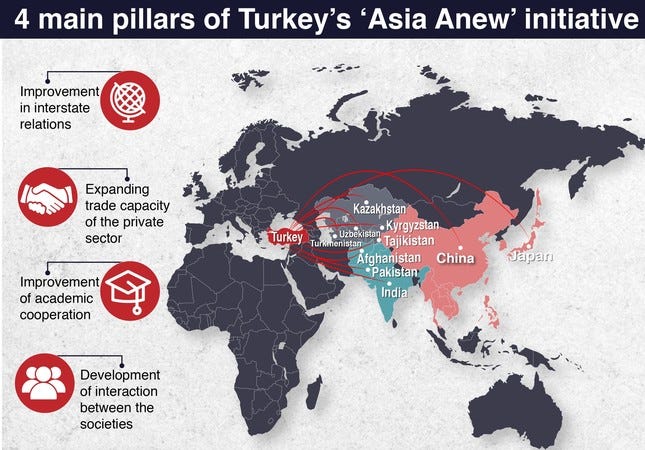For the first time in my life, words are not coming to me easily. Nor is the ability to make a decision. I’m hyper aware that time is going by with or without me, but lack the motivation to jump back into the fray.
I find it difficult to attend events and have convinced myself they go better when I’m not around. Last week, I made it half way to a community event and I broke down into a panic attack half way there. I walked home.
Improving this is not a journey I’m prepared for in the slightest. Self-love is a foreign concept to me, and unlearning transactional love is even harder.
But, it’s not as if the state of the world is encouraging stability, let alone “positivity.” Beijing is cracking down on Hong Kong, India is destroying Kashmiri independence, the US economy’s recessions lights are going off, and the only thing holding what little progress I’ve seen in my lifetime together is a court system now stacked with Evangelical sycophants.
As a Queer person, I find it impossible to ignore the global slide of individual freedoms on a personal level. I find it incorrigible to ignore the direct connection Christianity has to the rise in domestic terror and rampant corruption. I find it incomprehensible how we live in the single greatest time period for access to information – and people are getting willfully more ignorant.
Everyone’s advice? Ignore it.
Unfortunately – by birth and by nurture – that is not possible for this fag who finds nostalgic comfort in the waves of an imperial jet’s sonic boom.
American Empire (“The Greater United States”)
An alternative to US world dominance (The Boston Globe)
The presidential campaign now getting underway presents an opportunity to confront this post-Cold War pattern of failure and disappointment. While foreign policy alone won’t determine who wins the Democratic nomination or eventually the White House, any candidate offering a plausible alternative to neoliberalism, neo-militarism, and neo-imperialism stands to receive a sympathetic hearing.
Granted, promoting honest consideration of such an alternative approach won’t be easy. The foreign policy establishment will fiercely resist any effort to curtail its influence. Yet change is imperative.
After all, the unipolar moment, if it ever existed, has ended. The emerging order of the 21st century will be fluid, complex, and messy. While it may be premature to specify the precise pecking order of status and clout, no one nation will be able to call the shots – not China and not the United States. Global hegemony is a mirage.
How the US Created Violent Chaos in Honduras (Jacobin)
But while Trump & Co. battened down the hatches, a critical history lesson was lost in the ruckus: US foreign policy in Central America over the past several decades is largely to blame for US-bound migration in the first place. It’s no coincidence that the caravan initiated in Honduras, the epicenter of recent US meddling in the region.
And yet the US commitment to nurturing a violent Central American milieu is nothing new; back in 1954, for instance, the CIA-orchestrated coup against democratically elected Guatemalan president Jacobo Árbenz — a character insufficiently obsequious to US corporate interests — paved the way for a war in which more than two-hundred-thousand Guatemalans were killed or disappeared, many of them indigenous Mayans. From Guatemala to El Salvador and Honduras and beyond, it’s difficult to argue that US support for dictators, death squads, and socioeconomic inequality has nothing to do with the present panorama of poverty and violence that Central Americans are fleeing. The US obsession with the sacrosanctity of its own borders clearly hasn’t stopped it from violating everyone else’s.
Trump is 'triaging' Afghanistan (The Hill)
In cases such as Vietnam, Iraq, or now Afghanistan, where the United States has backed a local ally yet decides to withdraw its support, practitioners of strategic triage hope the ally can stand alone against its enemies. That equates to the medical category of patients who will survive without care. Iraq survived the U.S. pullout in 2010, although it needed help to withstand the ISIS onslaught a few years later. Or local allies may fall to their enemies, much as some disaster victims succumb to their wounds even with treatment. South Vietnam fell to a North Vietnamese assault in 1975. They prove incurable.
US should drop concerns around state planning (Financial Times)
The need to transition to a worker-led economy is increasingly clear. There is a great irony that while the US essentially invented modern industry policy, many there still view it as a dangerous subject. Under Alexander Hamilton, founder of America’s first national bank, politicians directed US industrialisation. Presidents including Kennedy also supported a state role in directing capital flows. But since Reagan, trickle-down and laissez-faire have ruled, despite evidence markets do not allocate capital to the most productive places.
There is a sense that monetary policy can no longer support US growth, and that the country may be heading for a recession. The private sector is uninterested in low return public infrastructure projects, or investment in education and training needed to bolster underlying growth in the real economy. This has made government-led industrial policy a major topic on the Democratic presidential campaign trail, with candidates such as Senator Elizabeth Warren advocating for some modern industrial planning.

China & Indo-Pacific (ASEAN, India, Japan, Korea, and Oceania)
Australia to redirect $500 million in foreign aid to new Pacific projects (SMH)
Pacific Island leaders held a climate roundtable ahead of the forum in Funafuti, the capital of Tuvalu, on Monday, highlighting the need for Australia play a bigger role to address the issues many low-lying nations face through climate change. The historic meeting took place amid growing concern by Western nations over China's influence in the region as Beijing attempts to buy favour with massive foreign aid projects in return for bolstering its military presence.
China ‘can’t just stay out’ of Kashmir dispute, will play peacemaker (RT)
For Beijing, the status quo, in which India and Pakistan focus their defensive energies on each other, is ideal. China has fought a series of border conflicts with India since the 1960s, and “will be in a tight spot if Pakistan escalates conflict,” Sreeram Chaulia, professor of international affairs at Jindal Global University told RT.
“India is a much bigger economy and military than Pakistan,” he explained. “And China will face an adverse balance of power if Pakistan loses another war with India. So, China will quietly advise Pakistan to tone down the rhetoric over Kashmir.” What China will not do, public policy expert Iftikhar Lodhi of Nazarbayev University told RT, is “actively get involved in putting a resolution to the UN,” a move that Pakistan may consider next.
India responds to Belt and Road Initiative with infrastructure push (Nikkei)
But more than a simple aeronautical arrangement, the route shines a light on India's Act East Policy, which aims to improve connectivity -- and relationships -- between India and its eastern neighbors, including the ASEAN countries. That this comes as China increases its influence in the region through the Belt and Road Initiative should not surprise anyone.
New Delhi is working on a host of other connectivity initiatives. It is involved in the Kaladan transport project, which links the remote Northeast with other parts of the country via Myanmar and the Bay of Bengal.
Trump is making Xi Jinping's superpower 2050 plan tougher (The Strait Times)
In one sign of how rapidly the Sino-US relationship has deteriorated, some state media in China have raised the prospect that Beijing may consider cutting off engagement on trade entirely. Communist Party-run publications have stoked nationalism in recent weeks while exuding confidence in China's economic system and its flexibility to cope with external challenges.
Europe & Central Asia (EU, Russia, Turkey, and the UK)
Asia Anew: Initiative to shape future of Turkish diplomacy (Daily Sabah)
Turkey's new initiative consists of four main pillars – improvement of interstate relations, expanding the trade capacity of the private sector, improvement of academic cooperation and development of interaction between the societies.
Here's why the Russian military has so many serious accidents (Task & Purpose)
"Russia really pushes an infrastructure that is old to try to keep up or gain parity with the United States. They're pushing their fleet and pushing their military to perform in a certain way that is often beyond what is safe for them to actually do considering the age of the equipment and the age of the infrastructure. There is a culture of aggressiveness and risk-taking," Edmonds added, pointing to some of the close calls the Russian military has had while executing dangerous maneuvers in close proximity to the US military.
The U.S. or China? Europe Needs to Pick a Side (Politico)
Europe’s reluctance to side with the United States puts liberal democracy in danger. The closer Europe gets to China, the less opposition China will face in its efforts to re-shape norms—on issues like data and privacy, Internet freedom, AI and governance. To uphold their shared values, both the United States and Europe need to collectively push back against China’s unfair trade and investment practices, its blatant human rights abuses, and the anti-democratic norms and practices it seeks to spread. A Europe that refuses to pick sides is exactly what Beijing seeks to achieve. Beijing understood long ago that its rising economic influence would lead other countries to balance against it. In an effort to dilute Western opposition to its national interests, China has taken steps to interrupt Europe’s alignment with the United States.
The World Is Reaping the Chaos the British Empire Sowed (Foreign Policy)
Anand argues that as well as divide and rule, the British Empire pursued a policy of “divide and quit.” This left behind unsatisfactory arrangements that were likely to ferment into conflict later down the line.
It is not solely Britain’s fault that two of its former colonies are embroiled in battles over their identity. Kashmir has been plagued by decades of sectarian fighting, and the terms of the Hong Kong handover were supposed to guarantee the region’s rights until 2047. Nor is it clear how Britain could directly help ameliorate these situations today; China routinely portrays any opposition in its realm as a manifestation of foreign interference. Similarly, India has always insisted that Kashmir must be an internal issue.
But Britain could do more to recognize its contribution to the discontent of millions of people who have never had a say in their own government.

Global South (Africa, Latin America, and the Middle East)
Cruise-line corps are building private Caribbean play zones (The Economist)
A slice of Haiti’s coast that Haitians can’t enter (unless they work for Royal Caribbean) and, from the perspective of visitors, might as well be the USA. They don’t need a passport and conduct all transactions in U.S. dollars. They do pay a $12 surcharge to Haiti’s government, and there are similar arrangements on other islands.
Ethiopia’s Economy Is Booming, but at What Cost? (The Atlantic)
In 2006, hundreds of miles upstream, the Ethiopian government began constructing Africa’s tallest and arguably most controversial dam, known as Gibe III, with the help of a Chinese loan. The dam has the capacity to increase national energy output by 85 percent. It has another, more far-reaching, purpose as well. By regulating the river’s flow, it will feed the continent’s largest-ever state agricultural program, the Kuraz Sugar Development Project (KSDP)—almost as large as the total irrigated land area of neighboring Kenya. Together, Gibe III and KSDP represent the pinnacle of the ruling Ethiopian People’s Revolutionary Democratic Front’s (EPRDF) development ambitions. But by ending the Omo’s annual flood and, as a result, rupturing the fragile ecosystem on which the valley’s tribes depend, the project also raises a troubling question: Can the imperatives of a national economy ever outweigh the rights of a small minority to preserve its traditional way of life?
Growing urbanization will do Africa good yet (The New Times)
By 2050, it is projected that way more than half of all Africans will be living in cities. According to the World Bank, urbanization is the single most important transformation the African continent will undergo this century.
Venezuelans Prepared to Defend their Bolivarian Revolution (Dissident Voice)
“I am telling Donald Trump that criminal imperialism will not cope with Venezuela. The waters of Venezuela will be free, sovereign and independent. We will sail there the way we chose to. Get ready for a fight if you want to introduce a quarantine against Venezuela,” said the Venezuelan president.
Modern Thought
In Carter's home county, voting rights case tests democracy (ABC News)
Two of the last four board elections were called off by judges, and two were held under the new plan, which a federal district judge ruled last year violated the 1965 Voting Rights Act by "diluting" African American voting strength. The judge also said decades of discrimination had hindered the black community's ability to exercise electoral power in at-large elections.
Under the Voting Rights Act, the county's plan previously would have been cleared in advance by the Justice Department to guarantee it didn't harm minorities. That process, called "preclearance," was effectively dismantled by a 2013 Supreme Court decision. That allowed Georgia to implement the plan without oversight.
In Prison, and I Need More Than a Vote to Participate in Democracy (Truthout)
This new suffrage movement emerged with three goals in mind, (1) To make it easier for individuals convicted of a felony to regain the vote after they complete probation or parole; (2) To follow the lead of the 14 states that immediately restore voting rights upon release from incarceration; and (3) To ultimately allow individuals to vote from prison. While these goals are valuable, we cannot think of them as ends in themselves.
The suffrage movement has worked hard to restore felony voting rights, and progress has been made. Yet disenfranchisement continues, and will continue, under a myriad of guises. That’s because laws and policies stem not from participatory, inclusive, need-meeting thinking, but from the necessities of capitalism and white supremacy, and their political manifestations.
Is The South A Safe Place For LGBTQ People? (WFPL)
Writer and reproductive justice activist Quita Tinsley argues that while the potential for violence or discrimination against queer and trans folks in the South can be higher than other regions, the entire nation is unsafe for those same people. And when she visited these northern “Gay Meccas” she felt isolated and experienced overwhelming levels of anti-blackness that exceeded what she felt in the South.
“This experience forced me to be honest with myself about something: as a Black, queer woman, there are far too few cities that are safe for me. I felt no more safe interacting w/ people in San Francisco than I did in rural Georgia.”
The Global Machine Behind the Rise of Far-Right Nationalism (NYT)
To dig beneath the surface of what is happening in Sweden, though, is to uncover the workings of an international disinformation machine, devoted to the cultivation, provocation and amplification of far-right, anti-immigrant passions and political forces. Indeed, that machine, most influentially rooted in Vladimir V. Putin’s Russia and the American far right, underscores a fundamental irony of this political moment: the globalization of nationalism.
The Great Land Robbery (The Atlantic)
The shameful story of how 1 million black families have been ripped from their farms. The land was wrested first from Native Americans, by force. It was then cleared, watered, and made productive for intensive agriculture by the labor of enslaved Africans, who after Emancipation would come to own a portion of it. Later, through a variety of means—sometimes legal, often coercive, in many cases legal and coercive, occasionally violent—farmland owned by black people came into the hands of white people. It was aggregated into larger holdings, then aggregated again, eventually attracting the interest of Wall Street.
Owners of small farms everywhere, black and white alike, have long been buffeted by larger economic forces. But what happened to black landowners in the South, and particularly in the Delta, is distinct, and was propelled not only by economic change but also by white racism and local white power. A war waged by deed of title has dispossessed 98 percent of black agricultural landowners in America. They have lost 12 million acres over the past century. But even that statement falsely consigns the losses to long-ago history. In fact, the losses mostly occurred within living memory, from the 1950s onward. Today, except for a handful of farmers like the Scotts who have been able to keep or get back some land, black people in this most productive corner of the Deep South own almost nothing of the bounty under their feet.
Random (interesting) links!
An Artist’s Maps of Imperialism and Greed (Hyperallergic)
Everything’s Coming Up Agrippina (Lapham’s Quarterly)
Modesto denies permit to anti-LGBTQ “straight pride” event (Metro Weekly)
On the History and Future of YA, Speculative Fiction by Black Women (LitHub)
‘60 Minutes’ and The Politicization of Development During the Cold War (ADST)



